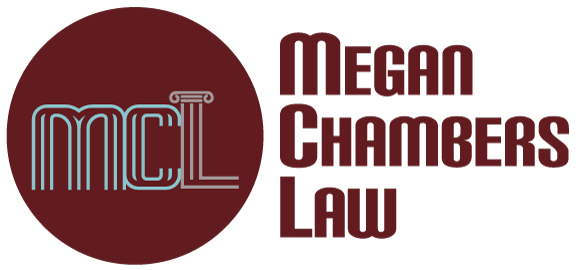Duties of an Executor in Alberta: A Complete Checklist

When a loved one passes away, one of the first responsibilities is ensuring that their estate is managed properly. If you’ve been named the executor of a will in Alberta, you have a serious responsibility to follow through on the deceased’s final wishes. This blog explains the duties of an executor in Alberta, the importance of an executor checklist, and everything you need to know about being an executor.
What is an Executor of a Will?
An executor of a will in Alberta is a person or institution appointed to administer the estate of the deceased. This is also known as a Personal Representative, although most people refer to it as an executor. As an executor, you are legally bound to carry out the wishes of the deceased as outlined in their will. The executor’s duties include ensuring that all assets are managed, taxes are paid, debts are settled, and the estate is distributed to the beneficiaries.
Understanding your role is crucial, as an improperly managed estate can lead to complications for both you and the beneficiaries. It’s also essential to remember that as an executor, you have certain rights, such as the ability to seek professional help when necessary.
Why Do You Need an Executor?
Having an executor ensures that the estate is administered efficiently, according to the wishes of the person who passed. Without an executor, the estate may experience delays or confusion, especially if there are complex assets like real estate or investments involved.
A well-appointed executor can avoid unnecessary probate delays and ensure that all tasks are completed promptly. An executor’s checklist can help guide you through the various stages of estate administration, ensuring nothing is overlooked.

What Does an Executor of a Will Do?
As the executor of a will in Alberta, you are tasked with numerous responsibilities, all of which are crucial for the proper administration of the estate. Your role is both a legal and fiduciary one, meaning you are legally bound to act in the best interests of the estate and its beneficiaries. Below are the key duties that you will need to handle:
1. Locating the Will and Confirming it is the Most Recent Version
One of your first tasks as an executor is to locate the most recent will of the deceased. This will serve as the guiding document for distributing the estate’s assets. If there are multiple versions of a will, you will need to ensure that the most recent one is followed. This can sometimes be complicated if the will is not clearly labeled or stored.
- If the will is stored in a safety deposit box, you may need to provide proof of death or a court order to obtain access to it.
- If no will can be located, you may need to apply for a grant of administration, which gives you the legal authority to manage the estate as if it were intestate (without a will).
Once the will is located, it’s essential to confirm that it meets all the legal requirements in Alberta and that it is signed and witnessed properly.
2. Notifying Beneficiaries and Creditors of the Death
As an executor of a will in Alberta, one of your primary responsibilities is to inform the beneficiaries (those named in the will to inherit assets) and creditors (those to whom the deceased owed money) of the death. This ensures that all interested parties are aware of the probate process and can make any claims against the estate if necessary.
- You’ll need to send formal notifications, such as letters or notices, to the beneficiaries outlining their inheritance and providing them with updates on the estate administration.
- Similarly, creditors must be notified so they can submit claims against the estate if they are owed money.
Notifying these parties is essential to avoid any disputes or delays in the probate process.
3. Handling Probate
Probate is the legal process of validating the will and obtaining court approval for the distribution of the deceased’s assets. As the executor, you will be responsible for applying for probate with the Alberta court, ensuring all necessary documentation is filed correctly.
- It is best to hire a probate lawyer to help guide you through the probate process, especially if there are disputes or complications.
- Once probate is granted, you’ll receive the legal authority to act on behalf of the estate, which includes paying debts, transferring assets, and distributing property according to the will.
This step can take several months, especially if the estate is complicated or contested. It’s essential to stay organized and keep the estate’s beneficiaries informed throughout this process.
4. Managing and Protecting Assets
After probate is granted, one of your most important duties is managing and securing the deceased’s assets until they can be distributed to the beneficiaries. This includes physical assets like property and valuable personal items, as well as financial assets such as bank accounts, investments, and life insurance policies.
- Real estate: If the deceased owned property, you will need to take steps to ensure it is maintained, insured, and safeguarded during the probate process.
- Financial assets: You may need to access and manage bank accounts, pay bills, and secure investment portfolios. You’ll also need to gather statements and prepare an inventory of the estate’s assets.
This process requires attention to detail, as any mismanagement could result in personal liability for the executor.
5. Paying Outstanding Debts and Taxes
An important part of your role as executor is settling any outstanding debts of the estate. This could include paying off credit card bills, loans, taxes, and any other financial obligations the deceased may have had. This is often done through the estate’s bank accounts, and you must ensure that these debts are settled before distributing the assets to the beneficiaries.
- Taxes: One of the most complex aspects of being an executor is dealing with the deceased’s tax filings. This may include filing final income tax returns for the deceased and addressing any estate taxes. It’s essential to make sure taxes are filed on time to avoid penalties.
- Creditors: You’ll also need to ensure that any creditors are paid from the estate’s funds before any inheritance is distributed. If there are insufficient assets to pay all debts, you may need to work with a bankruptcy trustee to resolve the matter.
Failure to pay off debts properly can lead to disputes among beneficiaries and may expose you to personal liability.
6. Distributing Assets to Beneficiaries
Once all debts and taxes are settled, you can proceed with distributing the assets to the beneficiaries as per the instructions in the will. This is the final step of estate administration and can often be the most emotionally charged, as it involves transferring ownership of personal property and significant assets, such as homes or businesses.
- You’ll need to ensure that all assets are distributed according to the terms of the will and any legal requirements.
- Real estate and other large assets may require additional paperwork to transfer ownership.
- If there are disputes between beneficiaries over the distribution, it’s important to have clear documentation and potentially seek legal guidance.

Timelines for Executors
The role of an executor of a will comes with strict timelines. After a person’s death, the executor typically has several steps to follow, including applying for probate and managing estate assets. Probate can take several months, sometimes over a year, depending on the complexity of the estate.
To help you stay on track, an Alberta executors’ checklist can ensure all legal requirements are met and that the estate planning process runs smoothly.
Executor Fees in Alberta
In Alberta, executor fees are typically based on a percentage of the estate value, although some executors charge a flat fee. The fee is often around 3% of the estate’s total value, but this can vary depending on the complexity of the estate and the amount of work involved.
If the estate is large or complicated, you may decide to hire professional help, such as an estate planning lawyer. These professionals charge fees, which may be a good choice for ensuring the estate is properly managed. Their fees are usually able to be charged back to the estate, ensuring you are supported without having out-of-pocket expenses.
Executors Checklist
Managing an estate can be overwhelming, but having a clear plan is essential. Download our Executor’s Checklist to ensure you stay organized and on track with all the key steps required to fulfill your duties as the executor of a will in Alberta.
Frequently Asked Questions
Can I write my own will in Alberta?
How to get a copy of a will in Alberta?
You can get a copy of the will after probate has been granted. If you are the executor or a beneficiary, you can also request a copy from the person who holds the will.
Do you need an executor for a will?
Yes, every will requires an executor (also called a personal representative) to administer the estate. The executor’s duties include ensuring that the deceased’s wishes are followed, debts are settled, and assets are distributed. If the will doesn’t specify an executor, the court may appoint one.
Do executors get paid in Alberta?
Yes, executors in Alberta are entitled to receive executor fees for their work, but it depends on the construction of the will. These fees are typically calculated as a percentage of the estate’s value, although in some cases, a flat fee may be applied. The amount is usually determined based on the complexity of the estate and the amount of time and effort required.
Can an executor assign duties?
Yes, an executor can assign certain duties to others, such as hiring professionals (e.g., accountants, lawyers, or appraisers) to assist with complex tasks like tax filings, estate appraisals, or managing real estate. However, the executor remains legally responsible for ensuring the estate is managed properly and the duties are carried out according to the law.
How long does an executor of a will have in Alberta to close an estate?
In Alberta, the process of probate and estate administration can take anywhere from several months to over a year, depending on the complexity of the estate. The timeline can be influenced by factors such as the size of the estate, the type of assets, and any disputes among beneficiaries. While there is no strict deadline, the executor needs to ensure that all tasks are completed promptly to avoid complications or legal challenges.
Conclusion
Understanding the duties of an executor in Alberta is crucial for carrying out the responsibilities effectively. By using an executor checklist and staying on top of timelines, you’ll be well-equipped to manage the estate and avoid legal pitfalls. If you ever feel unsure about the process or need legal guidance, consulting a professional estate planning lawyer is always a wise choice.
